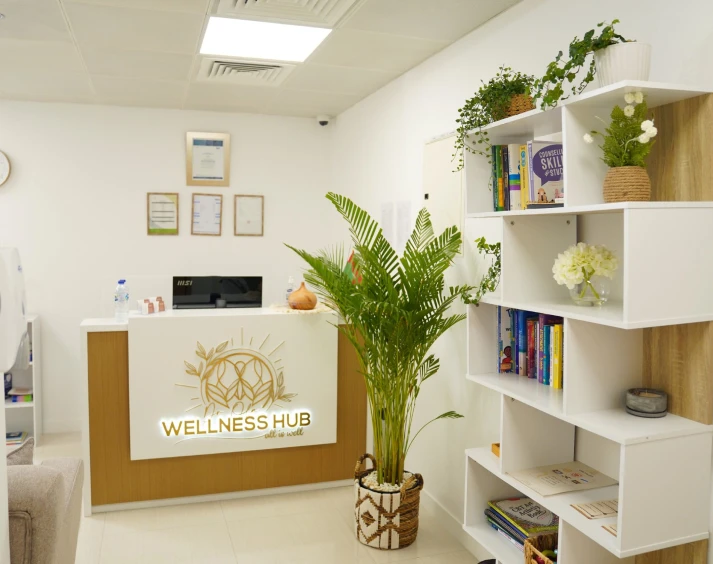Introduction to Wellness: What It Really Means
Wellness is more than just being free from illness. It’s a proactive approach to living that encompasses physical, mental, and emotional health. True wellness is about balance—caring for your body, mind, and soul. It involves cultivating habits that foster a long, healthy life, and includes exercise, nutrition, sleep, and stress management. A focus on holistic health can lead to a more fulfilling, energized life. This introductory post can help readers understand what wellness truly means and why it’s vital to maintain.

Physical Wellness: Why Fitness is Key
Physical wellness is the foundation of a healthy life. Exercise helps improve cardiovascular health, boosts energy, reduces the risk of chronic diseases, and promotes longevity. Regular physical activity also helps regulate body weight, strengthens muscles and bones, and enhances flexibility. This blog will break down the benefits of staying active, how much exercise you need, and how to find a workout routine that works for you.

Mental Wellness: The Importance of a Healthy Mind
Mental health is as important as physical health. Mental wellness encompasses emotional balance, stress management, and mental clarity. Practices like mindfulness, meditation, and therapy can help maintain mental wellness. This post will explore the connection between mental and physical health, the impact of stress, and practical tips for improving mental clarity and emotional resilience.
Nutritional Wellness: Fueling Your Body the Right Way
What you eat directly impacts how you feel. Proper nutrition supports all areas of wellness—physically, emotionally, and mentally. A well-balanced diet with plenty of fruits, vegetables, lean proteins, and healthy fats provides the energy needed to power through the day. This blog will explore the importance of eating well, the role of hydration, and the impact of poor nutrition on overall health.
The Power of Sleep: Why Rest is Crucial
Sleep is often overlooked, but it’s one of the most vital aspects of wellness. Getting adequate sleep is crucial for recovery, cognitive function, and emotional well-being. It helps your body repair cells, boosts immune function, and supports mental clarity. This blog will discuss the importance of quality sleep, the benefits of a consistent sleep schedule, and tips for improving sleep hygiene.

Building Emotional Resilience
Emotional resilience refers to the ability to adapt and recover from setbacks, stress, and adversity. It’s essential for maintaining mental and physical wellness. This blog will cover strategies to build emotional strength, such as developing a positive mindset, practicing gratitude, and managing stress through meditation and mindfulness.
Self-Care Practices for Total Wellness
Self-care is a critical component of wellness. It’s about taking the time to nurture your body, mind, and soul. Self-care practices can include taking a warm bath, journaling, practicing yoga, or simply taking a mental health day when needed. This blog will provide tips for integrating self-care into your daily routine for improved well-being.

Stress Management: Finding Balance in a Busy World
Stress is a part of life, but chronic stress can negatively impact your health. This blog will delve into effective stress management techniques, such as breathing exercises, time management strategies, and mindfulness. It will also discuss how stress affects the body and how regular relaxation practices can counteract its harmful effects.
Mindfulness and Meditation: Key Tools for Wellness
Mindfulness is the practice of being present in the moment without judgment. Meditation helps train the mind to achieve this state. These tools are essential for improving mental wellness and overall health. This blog will explore how mindfulness and meditation contribute to better emotional regulation, stress reduction, and mental clarity, along with tips for getting started.
The Role of Hydration in Wellness
Water is vital for every function in your body. Hydration helps maintain bodily functions, support digestion, improve skin health, and boost energy. This blog will discuss the importance of drinking enough water daily, the signs of dehydration, and tips for making hydration a regular part of your routine.
The Importance of Regular Exercise in a Wellness Routine
Exercise is not just about physical appearance; it’s about overall well-being. Regular activity reduces the risk of chronic diseases, boosts mood, and improves sleep quality. This post will dive into the different types of exercise—strength training, cardio, flexibility—and how each one contributes to your wellness. It will also offer tips for staying motivated.
Holistic Wellness: Integrating Mind, Body, and Spirit
Holistic wellness is about finding harmony between all aspects of your life—physical, mental, emotional, and spiritual. This blog will explore how holistic practices like yoga, acupuncture, aromatherapy, and energy healing can support well-being. It will also discuss how to create a balanced wellness routine that addresses each of these dimensions.
How Nutrition Affects Your Mental Health
What you eat affects more than just your physical health; it impacts your mental and emotional well-being. Nutrient-dense foods like omega-3-rich fish, leafy greens, and antioxidants can improve mood, reduce anxiety, and boost cognitive function. This blog will explain the connection between food and mental health, offering practical dietary changes for a happier mind.

Creating a Wellness Routine That Works for You
Developing a personalized wellness routine is key to achieving long-term success in health. This blog will provide actionable steps for creating a customized wellness plan, taking into account your fitness level, lifestyle, and goals. It will include tips for sticking to your routine and making adjustments as needed.
The Benefits of Nature on Your Wellness
Spending time in nature has a profound effect on your overall health and wellness. Nature offers stress relief, boosts mood, and enhances creativity. This blog will highlight the health benefits of outdoor activities like hiking, walking, or simply sitting in a park. It will also discuss the importance of connecting with nature in today’s fast-paced, technology-driven world.
Mind-Body Connection: How Your Thoughts Influence Health
The mind and body are deeply interconnected. Negative thoughts, stress, and emotions can lead to physical health issues, while a positive mindset can promote healing and vitality. This post will explore the science behind the mind-body connection and offer tips for using mental techniques like visualization and positive affirmations to enhance your health.

The Role of Preventative Health in Wellness
Preventative health focuses on proactive care to avoid illness and chronic conditions before they occur. Regular check-ups, screenings, healthy eating, and exercise are key components. This blog will highlight the importance of preventative care, provide a checklist of essential health screenings, and discuss how early intervention can improve long-term health outcomes.
Finding Balance: Wellness for Busy Professionals
Work-life balance can be challenging for busy professionals. This blog will offer practical wellness tips for those juggling careers and personal lives. From quick workouts to stress-management strategies, it will help readers maintain their wellness even during hectic schedules.

Wellness for Families: Creating Healthy Habits Together
Wellness isn’t just for individuals; it’s a family affair. This blog will offer tips for families looking to improve their overall health together, from cooking nutritious meals to engaging in fun physical activities. It will also discuss the importance of teaching kids healthy habits that will serve them well into adulthood.
The Connection Between Spirituality and Wellness
Spiritual wellness is about finding purpose, meaning, and connection to something greater than oneself. This post will explore the benefits of spiritual practices like prayer, meditation, and reflection for mental clarity, emotional well-being, and stress reduction. It will offer guidance on integrating spirituality into a holistic wellness routine.